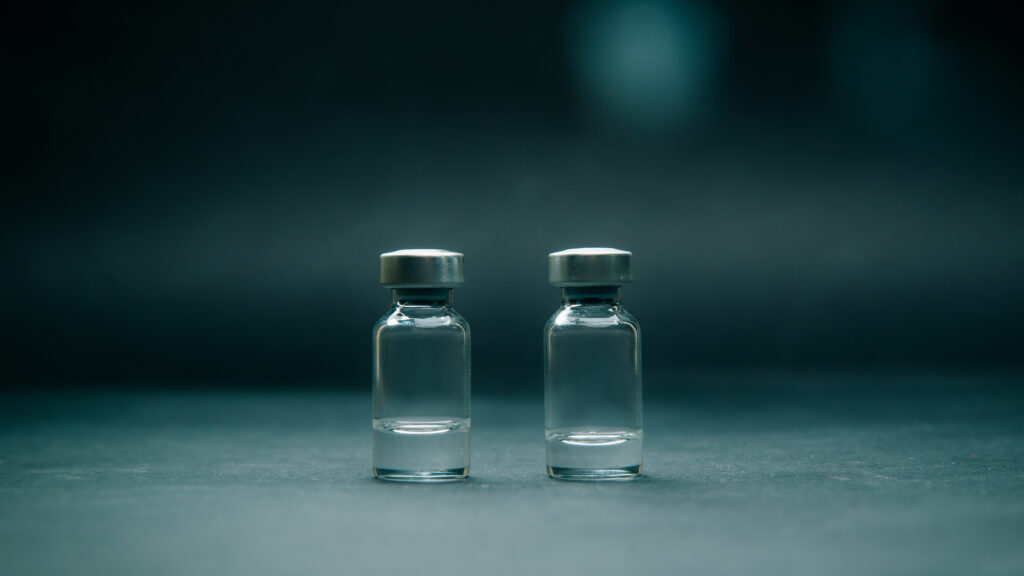The Federal Trade Commission presents on Thursday its interim staff report, “Pharmacy Benefit Managers: The Powerful Middlemen Inflating Drug Costs and Squeezing Main Street Pharmacies.” It reveals how pharmacy benefit managers intentionally force people onto high-cost, high-rebate drugs.
This report comes on the heels of Congress also putting pressure on PBMs during a hearing that highlighted how these companies undermine patient health and increase drug costs. The House Committee on Oversight and Accountability also released a report that found PBMs steer patients towards higher-cost prescription drugs. All of this oversight momentum is evidence that the PBM Monopoly actively denies patients access to lower-cost, safe, and effective drugs — including biosimilars.
advertisement
I issued a warning last year about the potential loss of an incredible opportunity for lowering health care costs in the United States: A watershed moment that occurred in the summer of 2023 when the biosimilar industry launched multiple lower-cost Humira (adalimumab) biosimilars into the U.S. market, many costing 85% less than the list price of the brand-name drug. This was an incredible opportunity for free market competition that should have led to patients, employers, and taxpayers saving billions of dollars. But it didn’t. The three largest PBMs denied patients and their families access to these lower-cost medicines because they wanted to maintain their profits. These PBMs put profits over patients.
Such a failure by PBMs to put patients first — combined with the damning takeaways from the report and hearing this week — demands immediate and robust reform to the underlying cause of this issue: the monopolies of pharmacy benefit managers. These middlemen in the prescription drug process — led by three conglomerates (Express Scripts, CVS Caremark, and OptumRx) currently being investigated by the Federal Trade Commission — control 80% of the prescription drug marketplace. They had a golden opportunity to provide access to lower-cost biosimilars to patients struggling to afford this medication, which can cost upward of $84,000 annually. But PBMs chose not to do the right thing simply because providing higher-priced prescriptions is more lucrative for the PBMs than providing lower-cost medicines to patients.
There is no better example of this than Humira, the world’s best-selling drug. Over the past year, 10 lower-cost adalimumab (Humira) biosimilars have entered the market in the U.S., but less than 4% of people who need this medicine have access to these lower-cost versions. In fact, in 2023, out of 42,000 people covered by Medicare who were prescribed adalimumab, fewer than 1,000 received an adalimumab biosimilar and this continues today and will in the future if nothing is done. Early next year, multiple Stelara biosimilars will launch in the U.S. and, if nothing changes, I predict that the PBMs will continue to put their profits first, and patients last; denying patients access to lower-cost biosimilars.
advertisement
This is unacceptable. While some PBMs have made one or two adalimumab biosimilars — not all of them — slightly more accessible on certain formularies, this is far too little, far too late.
Biologic medicines are some of the most important drugs in the world. They are also among the most expensive. Biosimilars are FDA-approved treatments that are similar to another biologic medication that has already been approved by the Food and Drug Administration that treat cancer, diabetes, psoriasis, arthritis, eye disease, and much more. Each biosimilar requires hundreds of millions of dollars and seven to nine years to develop before it can even go to the FDA for approval. Biosimilars, which cost, on average, 50% less than their brand-name predecessors, can help people afford these important medications.
Greater use of biosimilars can save the U.S. health care system up to $133 billion by 2025. Yet these savings are being completely left on the table because PBMs have prioritized in their formularies high-cost, high-rebate drugs over lower-cost biosimilars. A recent IQVIA report showed that access to Humira biosimilars could have saved the health care system up to $6 billion in one year had they been given greater inclusion in PBMs’ formularies.
This lack of market access for lower-cost biosimilars threatens the biosimilar industry’s commitment to the patients it serves and its long-term sustainability. When the Biologics Price Competition and Innovation Act of 2009 was signed into law, the biosimilar industry and PBMs were committed to a free market to develop and launch lower-cost biosimilar medicines. Since then, it has become clear to me that PBM business models have changed to prioritize profits instead of patients.
At the end of the day, patients and their families lose if they don’t have access to lower-cost biosimilars, and taxpayers lose when Medicare, Veterans Affairs, the Children’s Health Insurance Program, and other government medical programs can’t realize cost savings from them. PBMs have assured this loss across the board through a clear lack of access to biosimilars and denial of fair competition.
The Biden administration, Congress, the Federal Trade Commission, and others need to do everything in their power to address the anti-competitive behaviors of the PBM monopoly and control over the medicines people can access. Time is of the essence: every day without reform deepens the affordability crisis for Americans dealing with a convoluted, misaligned system for their prescription drugs.
Juliana M. Reed is the executive director of the Biosimilars Forum.

